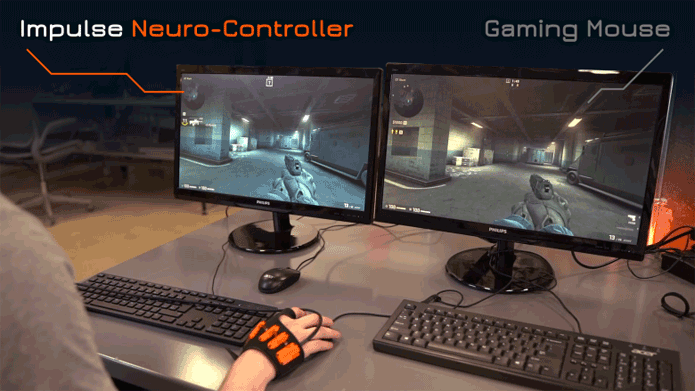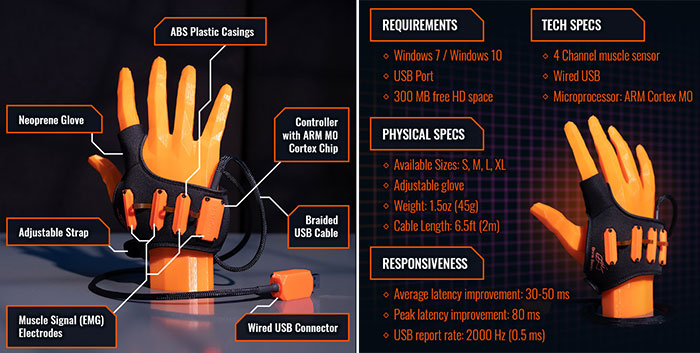Brink Bionics completed a very successful Indiegogo crowdfunding campaign in 2020 and gained the confidence to take part in the CES just last week. The Waterloo, Canada-based startup has a single signature product for now, the Brink Bionics Impulse. It is described as a "neuro-controller for PC gaming," and takes the form of a glove that uses built-in sensors to read your muscle bio-signals and applies AI to accurately predict your clicking intentions. They key claim for the product is that it can improve your gaming reaction speeds by as much as 80ms. Thus, the Impulse could be a boon to FPS, MOBA and RTS gamers on PC.

In PC gaming, particularly in the genres mentioned above and in competitions, milliseconds matter and gamers invest heavily in tech that promises to help them improve reaction times - be it an expensive monitor with minimal lag and latency, powerful PC components, or premium peripherals. The Impulse hastens your reaction times by knowing what you are thinking about doing, by reading those electrical muscle impulses, and 'clicking' for you before your muscles would be able to get around to completing the action.
Trisha Hershberger talks you through the technology and the appeal of the Impulse
Users wear the Impulse glove and launch the provided software (which will be changed from what is shown in the video above to a more consumer friendly UI before product availability). The Windows 7 to 10 software needs a bit of training for your left and right click fingers, and its AI will then become tuned to your bio-signals. Users can save gaming profiles and other people who share the PC can save their own profiles too.
Typically, a gamer might need 150ms to 200ms between their brain deciding to click and the finger completing the action, says Brink Bionics, but Impulse has been shown to reduce click complete time by 30-50ms on average or improve latency by as much as 80ms in the best cases.

Although the crowdfunding closed successfully last month, Brink Bionics has kept the Indiegogo exclusive pre-release pricing live at CAD$177 / GBP£103 plus shipping. The Impulse is expected to start shipping from May 2021.






